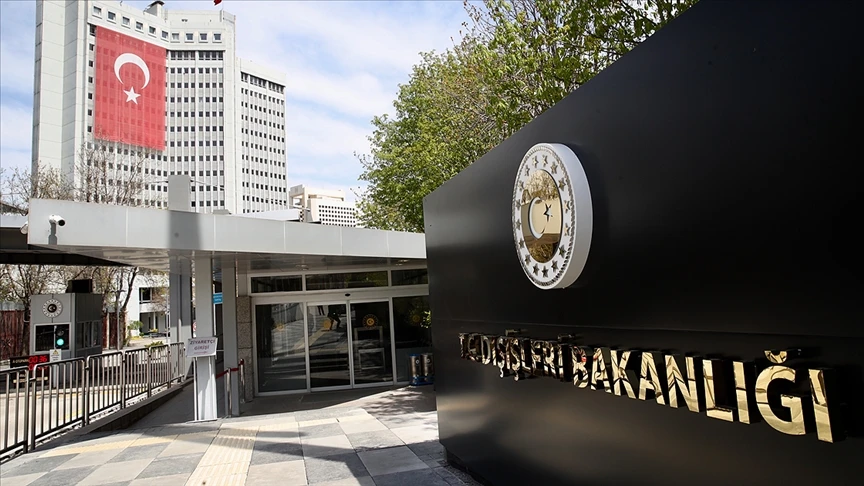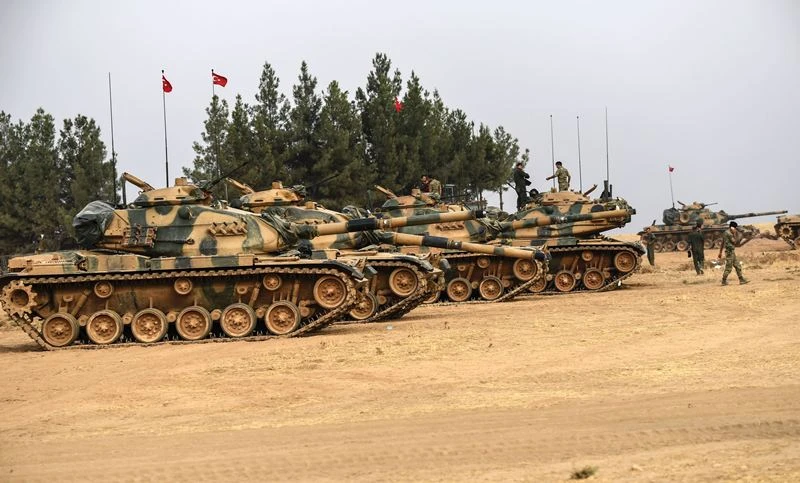Real estate in Gaza: Security or expansion in Israel’s evolving Gaza policy?
 Displaced Palestinians fleeing Israeli military operations in Beit Lahia in the northern Gaza strip walk along the Salah al-Din main road in eastern Gaza City making their way to the city centre, on October 22, 2024. (AFP Photo)
Displaced Palestinians fleeing Israeli military operations in Beit Lahia in the northern Gaza strip walk along the Salah al-Din main road in eastern Gaza City making their way to the city centre, on October 22, 2024. (AFP Photo)
Israel has always publicly positioned its military operations in Gaza as a response aimed solely at dismantling Hamas. Officials, including Israel’s United Nations Ambassador Danny Dannon, emphasize that Israel’s involvement is defensive and focused on national security rather than expansion.
Dannon, in particular, described Israel as a “peaceful nation” that is reluctant to engage in war, asserting that external threats left Israel “no choice” but to act.
Meanwhile, far-right settler leaders and ministers have pushed for more expansive plans for real estate in Gaza, calling for Israeli resettlement and development in the area. This ambition contrasts Israel’s stated military aims and suggests that political and ideological motives may be influencing Gaza settlement plans.

Israel’s official military goals in Gaza, diplomatic discourse
The Israeli government describes its actions in Gaza as necessary to eliminate Hamas’s threat and restore security.
Ambassador Dannon, speaking on BBC’s HARDTalk on Oct. 12, portrayed Israel as a nation forced into conflict to protect its citizens, specifically citing the Oct. 7 attacks as unprovoked. He emphasized that Israel’s actions aim at “securing peace and safety” rather than advancing real estate in Gaza.
- Defensive framing: Dannon emphasized that Israel’s actions are a direct response to safeguard its citizens, framing the conflict as unavoidable given the circumstances. He argued that Israel “has no choice” but to retaliate to protect its civilians, explaining that the conflict with Hamas must end for peace to return.
- Precision and restraint: The Israeli Defense Forces (IDF) supports this narrative by framing its operations as carefully executed and highly targeted, focusing exclusively on Hamas infrastructure. Following the Oct. 20 airstrike in Beit Lahiya, the IDF pointed to the use of precision munitions and disputed civilian casualty reports as exaggerated, claiming their strikes aim to limit harm outside of Hamas targets.
- Moral and operational justifications: Israeli officials have expressed commitment to minimizing civilian casualties, which Dannon presents as a guiding principle for operations. Dannon argued that Israel’s prolonged approach reflects its ethical responsibility to safeguard civilian lives, framing this as a calculated choice that limits collateral damage despite operational risks.
This official narrative of measured and defensive action, however, faces scrutiny given the simultaneous push of Gaza settlement plans from popular far-right figures like Daniella Weiss.
Furthermore, the increasing number of civilian deaths and Israel’s ban on humanitarian aid entry into Gaza signals that something else may be at play. Settler advocates have openly called for Israeli settlement in Gaza, backed by influential ministers, suggesting a broader vision beyond security concerns.
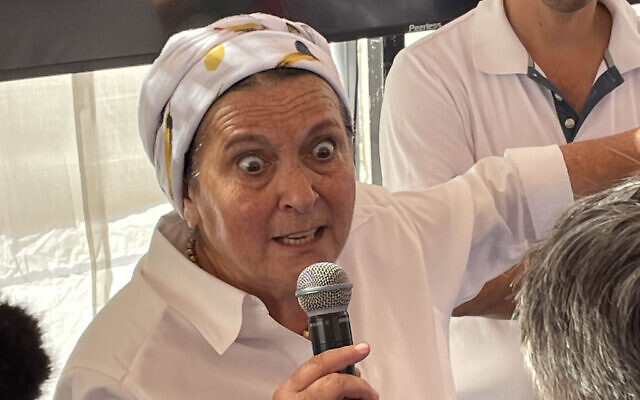
Israeli settlers hold real estate conferences near Gaza border, key figures attend
As Israel continues its military operations in Gaza, far-right settler leaders and influential ministers are promoting a different vision for the territory’s future, advocating for Gaza settlement plans.
At a recent conference held near the Gaza border, leaders from Israel’s settler movement outlined plans for extensive Jewish settlement in Gaza, aligning with broader Gaza settlement plans.
The event, organized by the Nachala movement (which organizes groups of young couples whose goal is to establish new communities in Historic Israel; Judea and Samaria), attracted support from prominent political figures and reflected aspirations for an Israeli-controlled Gaza that goes beyond current military objectives.
Daniella Weiss, the influential leader of the Nachala organization, called for an expansive approach to Israel’s Gaza settlement plans. Speaking openly of plans to populate Gaza with Jewish families, Weiss argued that the land “belongs” to Israel and suggested that Palestinians should leave Gaza for other countries, including Türkiye and Africa.
Daniella Weiss:
- “In less than a year, you will see the Jews come to Gaza and the Arabs disappear,” said Daniella Weiss, framing the Gaza settlement plans as reclaiming land that belongs to Israel.
- Claims that Nahala has already mobilized 700 families ready to settle Gaza, positioning this plan as a religious and national duty.
- Emphasizes the international resettlement of Palestinians, suggesting they could relocate to “England, Africa, or Türkiye.”
Support from Israel’s government has strengthened these ambitions. National Security Minister Itamar Ben Gvir, known for his role in the far-right Jewish Power party, attended the conference alongside senior Likud members, giving significant weight to the settler movement’s agenda.
Ben Gvir framed the Gaza resettlement plans as a security and ownership issue, suggesting a “voluntary transfer” of Gaza’s Palestinian population as a key solution.

Itamar Ben Gvir:
- He views Gaza as a rightful part of Israel, stating, “We are the owners of this land”.
- Advocates for the “voluntary transfer” of Gaza’s Palestinian residents, arguing that moving them out of Gaza would align with Israel’s security needs.
- Portrays resettlement as a legitimate step to secure Israeli borders and fulfill nationalistic goals.
Finance Minister Bezalel Smotrich also expressed support for the Gaza resettlement plans, linking it to Israeli security interests. Smotrich, who has previously called for Israel’s annexation of the West Bank, reinforced the settler movement’s belief that expanded Jewish presence would enhance stability and safety for Israelis.
Bezalel Smotrich:
- Argues that settlements in Gaza are vital to Israel’s security, framing the Gaza settlement plans as a continuation of Israel’s long-standing policies in other occupied territories.
- Smotrich positioned Gaza settlement plans as a way to further Israeli security, viewing the resettlement as a continuation of longstanding Israeli policies in other occupied territories.
This alignment between prominent settler leaders and government ministers illustrates a powerful political and ideological drive for a future Israeli presence in Gaza. Together, Weiss, Ben Gvir and Smotrich represent a vision that transcends Israel’s stated military goals, suggesting ambitions for long-term control and development of real estate in Gaza.
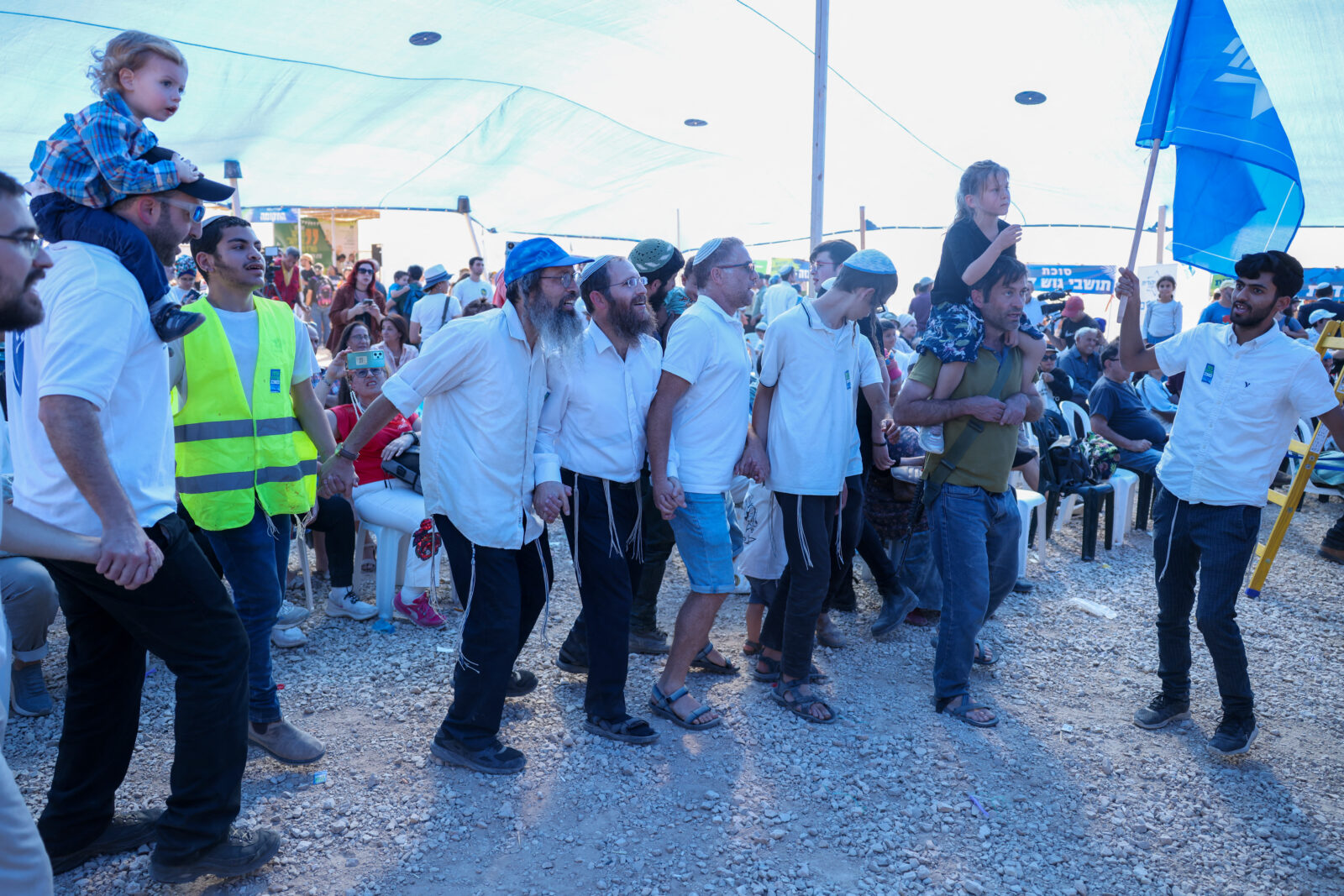
Israel’s economic ambitions, eyeing real estate in Gaza
Beyond ideological motivations, many in Israel’s far-right settler movement see real estate in Gaza as a valuable economic opportunity.
- At the Oct. 21-22 conference near the Gaza border, settlers discussed Gaza’s coastline as high-value property, which could help solve Israel’s housing shortages.
- Or Yomtovyan, a property developer and close ally of National Security Minister Itamar Ben Gvir, discussed Gaza’s economic potential, calling it “a good solution for the real estate problem.” He noted, “We are a small country, and there’s big land here we can use.”
- Yomtovyan emphasized Gaza’s beachfront as a “bargain” compared to Tel Aviv’s expensive coastal areas, where properties “cost 20 million to 50 million shekels ($5 million to $13 million)”.
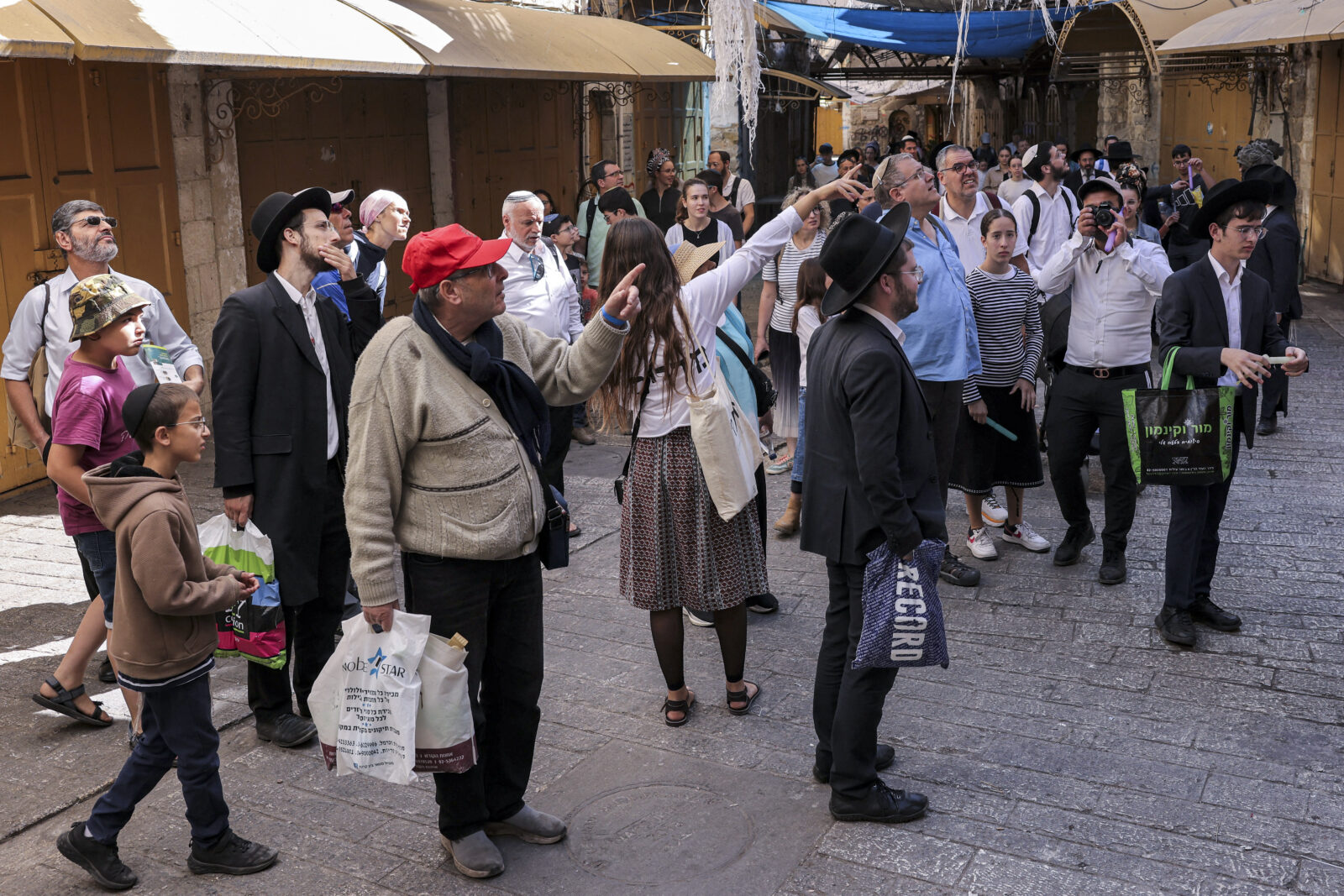
Held near the Gaza border, the conference stood in stark contrast to the humanitarian crisis just across the fence, where civilians face intense bombardments and severe shortages of essential supplies.
- Attendees enjoyed snacks like cotton candy, popcorn and hot dogs from stalls, creating a fair-like, celebratory atmosphere within earshot of Gaza.
- Children at the event participated in workshops with animals and crafts, while Israeli artillery fire continued in the background, underscoring the disparity between the conference’s tone and Gaza’s devastation.
- Daniella Weiss expressed her vision for Gaza’s coastline, saying she was “confident” that families were ready to move.
- Weiss predicted that attendees would soon witness how Jews settle Gaza while the Arabs “disappear” as she said that she had already received calls from friends in Tel Aviv asking her to “keep a plot near the coast in Gaza.”
Weiss and other officials have emphasized that the Gaza settlement plans align not only with religious duty but also with the idea of Gaza as an economically valuable asset for Israel.
High-profile ministers like Ben Gvir and Smotrich support these ambitions, framing real estate in Gaza as essential to the future of Israel’s economy and security.
Smotrich reiterated this stance at the conference, stating that settlements in Gaza would “bolster Israel’s security,” while Ben Gvir added that it was “the most ethical solution” to encourage Palestinians in Gaza to “move to other countries”.
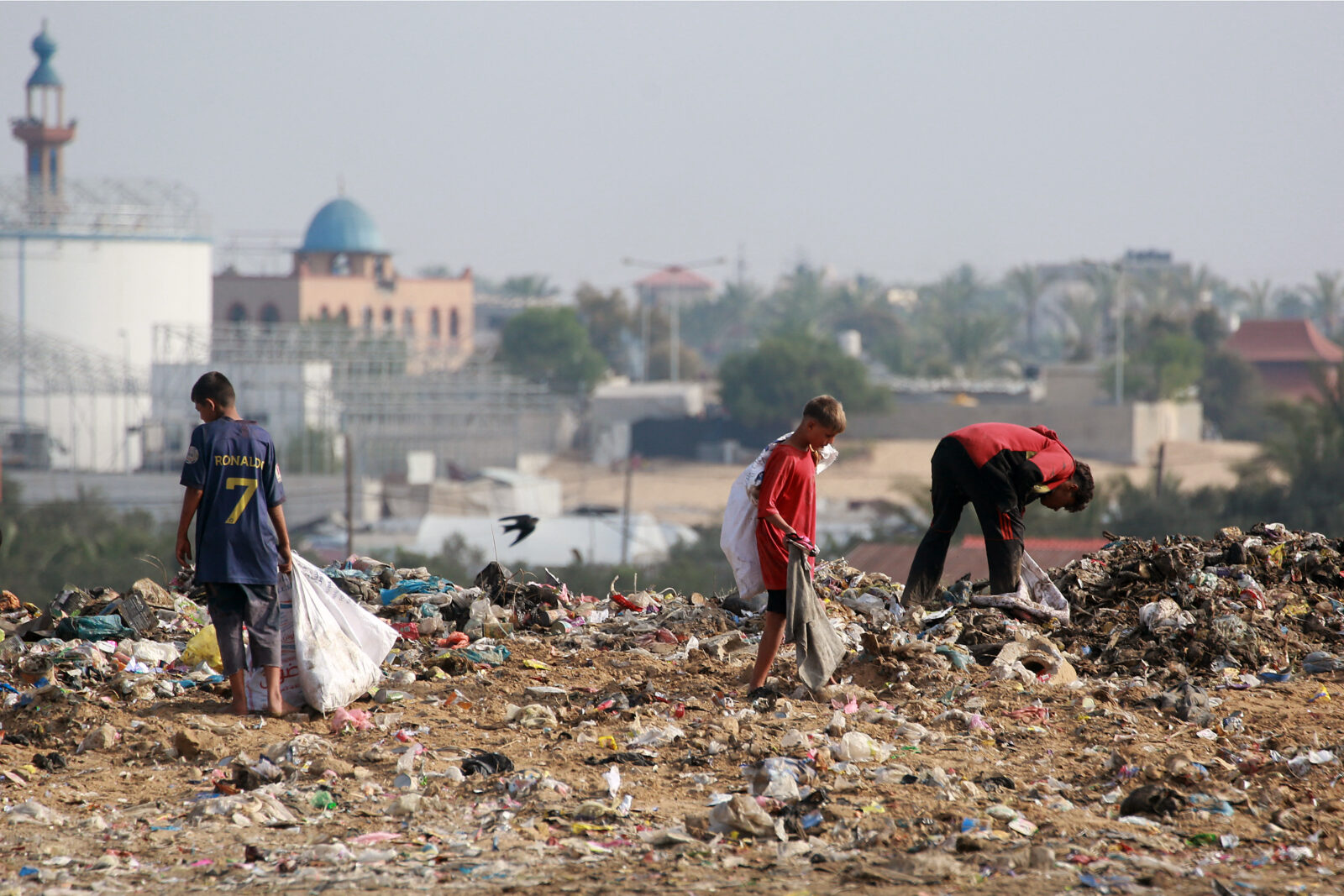
Humanitarian impact of Israel’s attack on Gaza, international reactions
The ongoing conflict has placed immense pressure on Gaza’s civilian population. According to Gaza’s Health Ministry, as of Oct. 24, at least 42,847 Palestinians have died since the outbreak of violence on Oct. 7, 2023, with many others suffering under conditions of severe food, water and medical shortages due to Israel’s blockade and frequent airstrikes.
Humanitarian organizations describe the situation as catastrophic, with the United Nations repeatedly urging a cease-fire to allow essential supplies into Gaza. However, aid organizations report ongoing barriers, unable to deliver crucial assistance to those most affected by the conflict.
International responses to these events have been mixed. While several Western nations call for Israel’s restraint, influential allies like the United States remain hesitant to pressure Israel directly.
- Humanitarian toll: Reports from Gaza’s Health Ministry cite 42,847 deaths since the beginning of Israeli offense, a figure that reflects the intense suffering faced by Gaza’s residents.
- Blocked aid and worsening crisis: Aid organizations and the United Nations have voiced urgent calls for a cease-fire to allow humanitarian access, yet Israel’s blockade continues to prevent supplies from reaching those in need.
- International calls for restraint: Figures like Secretary of State Blinken have called for Israel to de-escalate, urging for aid corridors, though with limited pressure. Israel’s leaders, meanwhile, justify their actions by stressing their necessity for national security and stability (Sources 1, 8).
The contrast between settler celebrations and real estate in Gaza and the severe humanitarian toll across the border is becoming more evident to the international community, which increasingly questions Israel’s adherence to humanitarian standards.
Despite this, Israeli officials argue that removing Hamas remains essential to securing peace, presenting Israel’s position as both defensive and morally necessary.
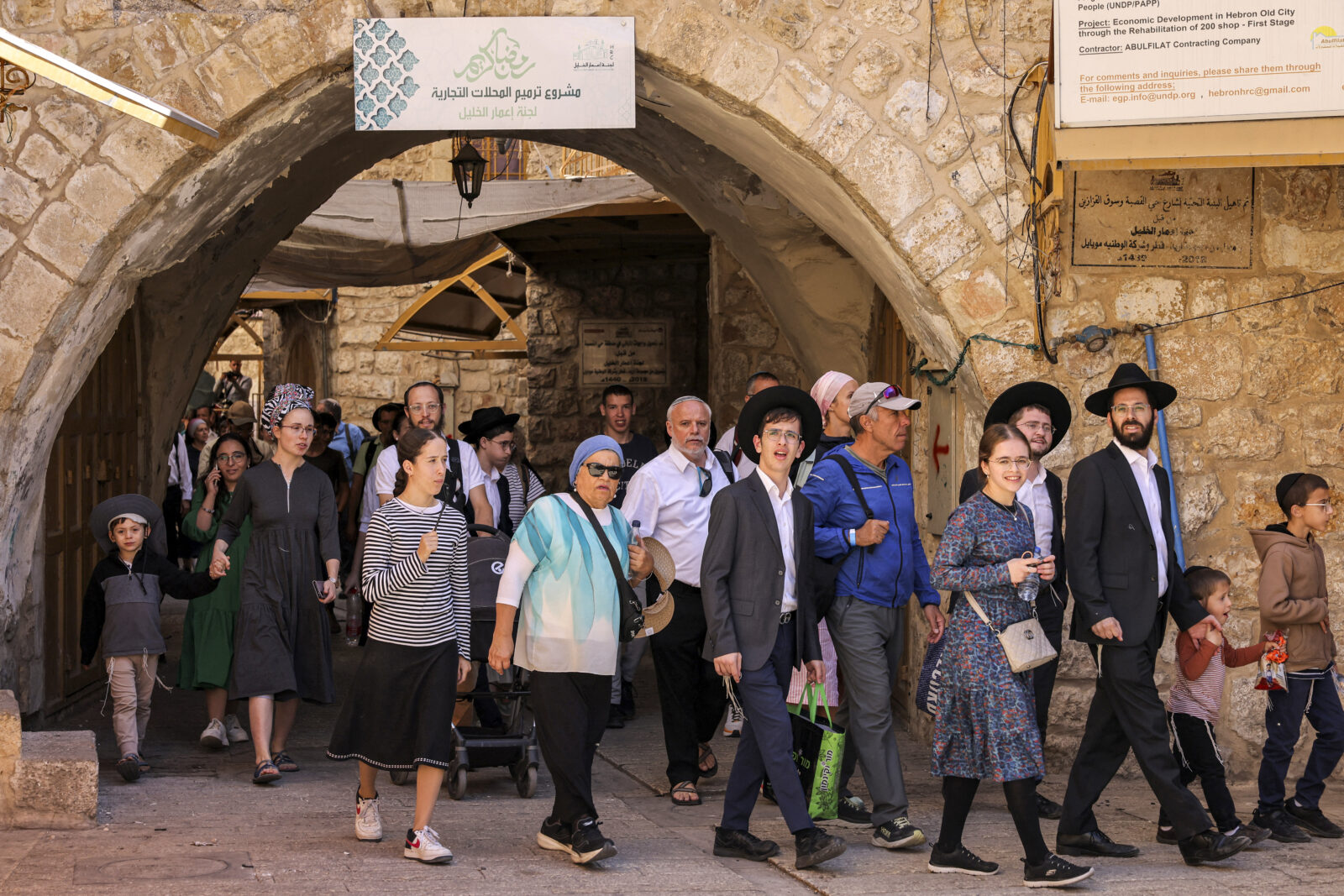
Contradictions in Israeli settler discourse, future implications for Gaza
The divide between Israel’s stated objective of eliminating Hamas and the ambitions voiced by settler leaders and far-right ministers has raised significant questions about the long-term goals for Gaza.
While the government asserts that its military actions are strictly defensive, aiming to restore security, the active push from influential settler leaders suggests a broader agenda. Figures like Daniella Weiss and Or Yomtovyan openly advocate for resettlement in Gaza, framing it as both a security measure and a profitable economic opportunity.
International observers and humanitarian groups increasingly question Israel’s dual narratives: a public emphasis on security versus settler-led plans for occupation and the development of real estate in Gaza.
These mixed messages have deepened skepticism among international actors, with some suggesting that Israel’s actions may not solely be about dismantling Hamas but could also be linked to an ideological and economic restructuring of Palestine’s future through Israel’s Gaza settlement plans.

